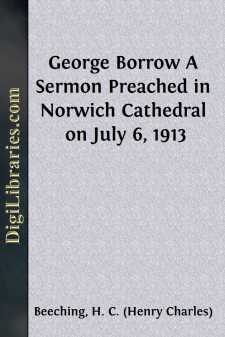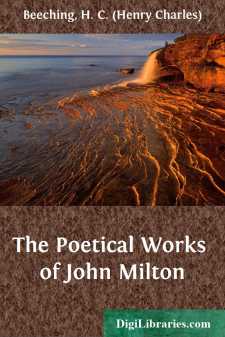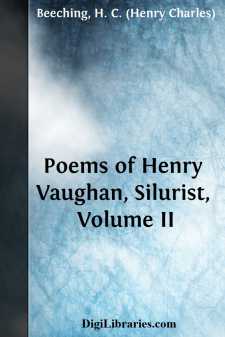Categories
- Antiques & Collectibles 13
- Architecture 36
- Art 48
- Bibles 22
- Biography & Autobiography 813
- Body, Mind & Spirit 142
- Business & Economics 28
- Children's Books 15
- Children's Fiction 12
- Computers 4
- Cooking 94
- Crafts & Hobbies 4
- Drama 346
- Education 46
- Family & Relationships 57
- Fiction 11828
- Games 19
- Gardening 17
- Health & Fitness 34
- History 1377
- House & Home 1
- Humor 147
- Juvenile Fiction 1873
- Juvenile Nonfiction 202
- Language Arts & Disciplines 88
- Law 16
- Literary Collections 686
- Literary Criticism 179
- Mathematics 13
- Medical 41
- Music 40
- Nature 179
- Non-Classifiable 1768
- Performing Arts 7
- Periodicals 1453
- Philosophy 64
- Photography 2
- Poetry 896
- Political Science 203
- Psychology 42
- Reference 154
- Religion 513
- Science 126
- Self-Help 84
- Social Science 81
- Sports & Recreation 34
- Study Aids 3
- Technology & Engineering 59
- Transportation 23
- Travel 463
- True Crime 29
George Borrow A Sermon Preached in Norwich Cathedral on July 6, 1913
Categories:
Description:
Excerpt
GEORGE BORROW
A SERMON PREACHED IN
NORWICH CATHEDRAL ON
:: :: JULY 6, 1913 :: ::
by
H. C. BEECHING, D.D., D.Litt.
dean of norwich
london
JARROLD & SONS
publishers
“As for me, I would seek unto God, which doeth great things and unsearchable; marvellous things without number.”—Job v. 8.
You may desire some explanation of why we in this Cathedral, have thought it right to take part with the city in the public commemoration of George Borrow. It is not, of course, merely because he was a devoted lover of our ancient house, though for that we are not ungrateful. Nor again is it merely because he was for the most active years of his life a zealous servant of the Bible Society; and our Church has taken a special interest in that society since the day when Bishop Bathurst, first of his episcopal brethren, appeared upon its platforms side by side with Joseph John Gurney. Nor again is it merely because he was an accomplished man of letters. Religion and literature indeed have much that is common in their purpose. The Church exists to propagate a certain interpretation of the world and human life. Literature also exists to interpret life, and the great literatures of the world have never in their interpretations shown themselves antagonistic to religion; on the contrary, they have always tended to discover more and more elements of permanent value in human life, confirming the Church’s message of its Divine origin and destiny. But, unhappily, there have always been, and are still, men of letters whom the Church cannot honour, because their books, although technically meritorious, take a view of life which is in our judgment against good morals, or in some other way mischievous. If, then, we in this Mother Church claim our share in the commemoration of George Borrow, it is because he was, as we think, a true seer and interpreter; because he opened to us fresh springs of delight in the natural world; because he aroused new and living interest in the lives of men of many kindreds and tongues; and because he held up to our own nation an ideal of conduct which could not but benefit those whom it attracted.
Let me, as shortly as I can, remind you of some characteristics of that ideal.
Every reader of the Old Testament is familiar with the two great types which the early Israelitish civilisation sets before us again and again in Cain and Abel, Isaac and Ishmael, Esau and Jacob—the contrast of the wild and vagabond hunter and the “plain man, dwelling in tents.” These types as they appear in the Bible have in them a characteristically Semitic element, but they have still more of our common humanity. We observe the two types among our own children, and it is a contrast that interests us all. Our affections perhaps go out to the romantic Esau rather than to his business-like brother; while at the same time we recognise that the future of civilisation must lie not with the child of impulse, but with him who can forecast the future and rank something higher than his momentary whim. It was this fundamental contrast that was so interesting to Borrow. He studied it in the cities and in the wildernesses of this and many other lands; and because he studied it he was not content to accept the easy verdict of civilisation that finds nothing but profanity in Esau, or the equally easy paradox of a return-to-nature philosophy, which finds all virtue in the noble savage. Borrow studied Esau in his wandering life with interested eyes, and won his confidence and a glimpse of his secret; and he studied Jacob in his counting house and workshop with no less understanding, if with a less degree of sympathy; and then he exhibited to his countrymen an ideal which at the time vexed and disquieted them, because there were elements in it drawn from both....




